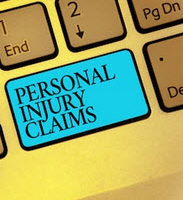Do Pre-Existing Conditions Affect Personal Injury Claims?

Many personal injury claims begin with the assumption that the plaintiff was in a state of perfect health when he or she was injured. However, that notion is quickly dispelled as medical tests are done and assessments performed. A thorough patient examination and review of a person’s medical history might reveal that a victim had a bad back prior to an incident, or that he or she has carpal tunnel as a result of work-related activities. More often than not, those pre-existing conditions have no effect on a person’s ability to recover compensation for injuries sustained in an accident, but every once in a while, those pre-existing conditions are used to reduce a person’s settlement or to deny it altogether. For this reason, if you were injured in an accident caused by another person’s negligence, and if you are either aware of or made aware of pre-existing medical conditions, it would be in your best interests to retain the help of a Tampa lawyer.
Recovering Compensation for the Aggravation of a Pre-Existing Condition
Lawmakers understand that no one is in “perfect” health, and that life causes wear and tear on the body that cannot be reversed. Moreover, they understand that normal wear and tear is not debilitating, but it can make a person more likely to sustain injuries under the right circumstances. If a person is put into such circumstances against their own free will, they should not be punished for resulting damage—or, at least that is the way the law sees it.
Upon receiving your medical reports, the insurance company will be scouring them for proof not only of a pre-existing condition, but also for proof that the accident had minimal to little damage on your health. For this reason, you should not only disclose your pre-existing conditions to your lawyer at the start of your case, but also you should encourage your healthcare provider to be as thorough as possible in his or her description of how the accident negatively impacted your health. The more details that your doctor provides, the better your odds of proving either that your condition DID NOT exist prior to the accident or, if it did, that it was greatly exacerbated by the accident. Under state and federal law, aggravated conditions are eligible for compensation in personal injury claims.
The Eggshell Skull Doctrine
The Eggshell Skull Doctrine is a doctrine that was put in place to protect individuals of innately fragile condition. The concept behind this rule stems from an imaginary case that illustrates its core concept: imagine a person injured another whose skull was as thin as an eggshell. Obviously, the person with the thin skull was susceptible to injury, but does that mean he or she should be forced to pay for the consequences caused by the other person’s negligence? Absolutely not. The defendant would still be liable for all damages despite the fact that he or she had no idea about the victim’s condition.
The take away for this article is simple: persons with pre-existing conditions are not automatically ineligible for recovering compensation for their injuries post-accident. If you have a pre-existing condition and are worried about how it might affect your case, contact Barbas Nuñez Sanders Butler & Hovsepian to discuss your case and options for recovery with our Tampa pre-existing condition lawyers today.
Resource:
law.cornell.edu/wex/eggshell_skull_rule




